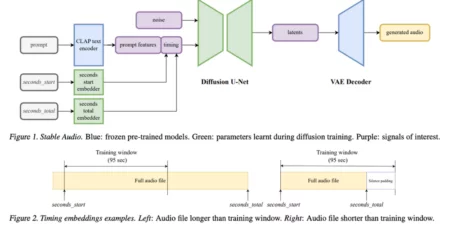In the pursuit of financial stability and long-term prosperity, the importance of saving money cannot be overstated. However, amidst the complex web of expenses and responsibilities, many individuals need help to set aside funds for the future.
This is where the simple yet powerful principle of “Start Paying Yourself” comes into play. By prioritizing your savings as if you were paying a bill, you can build a strong financial foundation that grants you peace of mind and opens the doors to countless opportunities.
What Does “Start Paying Yourself” Mean?
The “Start Paying Yourself” principle revolves around treating your savings as a non-negotiable expense, much like you would with rent or utility bills.
This means allocating a portion of your income towards your savings account before indulging in discretionary spending. By following this practice consistently, you’ll witness your savings grow steadily, paving the way for a secure and comfortable future.
Benefits of “Start Paying Yourself”
1) Financial Security:
One of the primary advantages of “Start Paying Yourself” is the sense of financial security it provides. A dedicated savings plan will prepare you for unexpected emergencies or life events requiring significant funds. This security minimizes stress and allows you to focus on other aspects of life without constant financial worries.
2) Long-term Wealth Creation:
Saving money is not just about meeting short-term goals but also about building future wealth. By consistently paying yourself first, you set the stage for investing in opportunities that can grow your money over time, such as stocks, real estate, or retirement accounts. The power of compound interest can work wonders when you start early and remain consistent.
3) Freedom and Flexibility:
A robust savings account grants you the freedom and flexibility to pursue your dreams and aspirations. Whether it’s starting a business, taking a dream vacation, or supporting a charitable cause, having financial resources at your disposal empowers you to make choices that align with your values and passions.
4) Stress Reduction:
Financial stress can take a toll on both mental and physical well-being. “Start Paying Yourself” acts as a buffer against such stress by creating a safety net. Knowing that you have a financial cushion to fall back on allows you to navigate life’s challenges with greater ease and composure.
5) Retirement Preparedness:
As retirement approaches, the significance of saving becomes even more evident. By incorporating the “Start Paying Yourself” principle into your financial habits, you can ensure a comfortable retirement, free from financial constraints. Your savings will be a reliable source of income during your golden years, granting you the opportunity to enjoy life to the fullest.

Implementing the “Start Paying Yourself” Principle
1) Assess Your Finances:
Begin by assessing your current financial situation. Calculate your income, fixed expenses, and discretionary spending. Identifying areas where you can cut back on non-essential expenses will create more room for saving.
2) Set Realistic Goals:
Define clear and achievable savings goals. Whether it’s building an emergency fund, saving for a down payment on a house, or planning for retirement, having specific objectives will keep you focused and motivated.
3) Automate Your Savings:
Use automation tools offered by banks to transfer a portion of your income directly into your savings account. This ensures you consistently follow the “Start Paying Yourself” principle, even when life gets busy.
4) Create a Budget:
Craft a comprehensive budget that allocates funds for necessities, savings, and discretionary spending. Stick to this budget diligently, and you’ll find it easier to meet your financial goals.
4) Minimize Debt:
High-interest debt can hinder your ability to save effectively. Prioritize paying off outstanding debts to free up more funds for your savings.
5) Invest Wisely:
Explore investment options that align with your risk tolerance and financial objectives. Diversified investments can help grow your savings over time.
6) Stay Committed:
Consistency is key to the success of the “Start Paying Yourself” principle. Stay committed to the practice; it will become a natural part of your financial routine.
Absolutely! The “Start Paying Yourself” principle applies to individuals of all income levels. Regardless of your earnings, setting aside a portion for savings is crucial for your financial well-being.
While both saving and debt repayment are important, try to strike a balance. It’s advisable to create an emergency fund first, then focus on debt repayment while continuing to save simultaneously.
Yes, you can adjust the percentage you save based on your monthly expenses. The key is to be consistent in saving a portion of your income, regardless of the amount.
While a traditional savings account is a safe option, consider exploring other investment avenues like stocks, mutual funds, or retirement accounts to grow your savings faster.
Life is full of surprises, and facing occasional setbacks is okay. If you can’t save in a particular month due to unforeseen expenses, resume the habit the following month when your financial situation stabilizes.
“A Great Principle for Saving Money is, “Start Paying Yourself” is a fundamental financial philosophy that can revolutionize your approach to money management. By prioritizing your savings and treating it as a fixed expense, you lay the groundwork for a financially secure and fulfilling future.
Implement this principle with discipline, stay committed to your financial goals, and watch your savings grow steadily over time. Remember, there is always time to start paying yourself and securing your financial freedom.
Conclusion:





